You must treat your mouth as your asset, and a routine visit to the dentist is much needed to care for your asset. Yet, kids or adults, most end up avoiding or delaying their visit welcoming tooth and gum problems. Mostly for adult routine visits, one gets their tooth cleaned, a deeper cleaning session if it is their first or non-routine visit. All dental cleaning procedures are not the same but work for the same result – a clean and healthy mouth. What is Dental Cleaning and Why You Need it?
Whether you brush regularly and indulge in self-teeth care or not, dental cleaning is essential nonetheless. Good oral hygiene may reduce the tartar buildup in your teeth but it still is not completely avoidable. Dental cleaning targets at removing this tartar and plaque buildup along with removing any stains and as a result avoid any future possibility of a tooth or gum disease.
The process is not very complex and is mostly painless. Any instrument used by your professional during is thoroughly cleaned and sterilized and any ‘scraping’ or pressure caused by them will not make you feel unpleasant. However, if that is the case, and you begin to feel any irritation during your dental cleaning, you can always ask your dentist for alternative techniques.
Let’s look closer into what dental cleaning entails and why it is absolutely necessary for you, especially by professionals at https://oralchirurgie-leipzig-lindenau.de/.
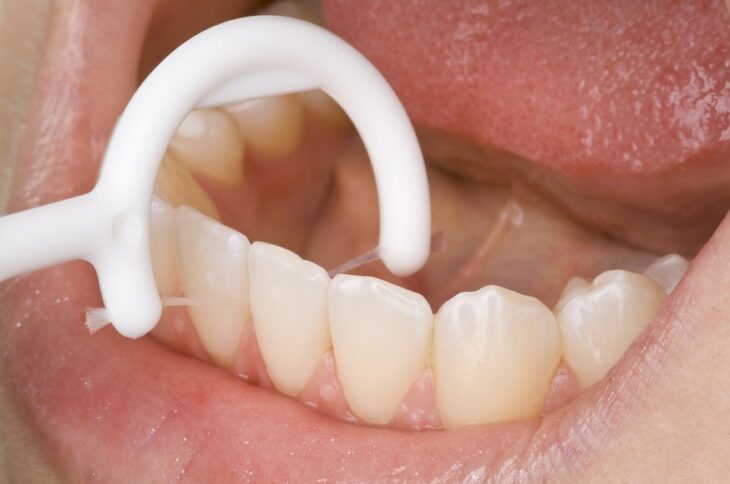
Source: thebump.com
Contents
What are Plaque and Tartar?
Plaque forms in your teeth when the naturally pre-existing bacteria of your mouth mixes with food particle remnants and results in a sticky buildup around your teeth and gums. This is known as plaque, which after a period gets hardened and calcified, developing into tartar, which Is often the reason behind teeth getting yellow or brown.
What to Expect at the Dentist’s – The Process
The first step to dental cleaning at any dentist’s is the dental examination. There may be pre-existing issues that can hinder your dental cleaning procedure. This is why the dentist first does a thorough checkup by inserting a small concave mirror into your mouth. In case of minor concerns, the information is passed on and the appropriate process is undertaken.
The second step is scaling, with which the dentist gently works at removing the plaque and tartar buildup. The more the tartar, the longer this goes on, and the longer you hear the ‘scraping’ sound in your mouth which is absolutely normal and expected in dental cleaning.
Thirdly a prophylaxis paste or a gritty toothpaste is used to polish your teeth with a high-powered electric toothbrush to remove the remaining tartar left behind in the scaling. Then the dentist goes for an expert flossing session for a deeper cleaning between the teeth and also recognizes your tender gum bleeding spots.
The dentist then goes onto giving you a liquid, probably consisting of liquid fluoride for thorough rinsing. The last step at removing any debris from your mouth.
Now that the process is done, the last protective measure would be to apply a fluoride treatment, which is simply a flavored foamy gel, applied onto a mouthpiece that is then fitted onto your teeth. This stays on for a minute after which you’re good to go!
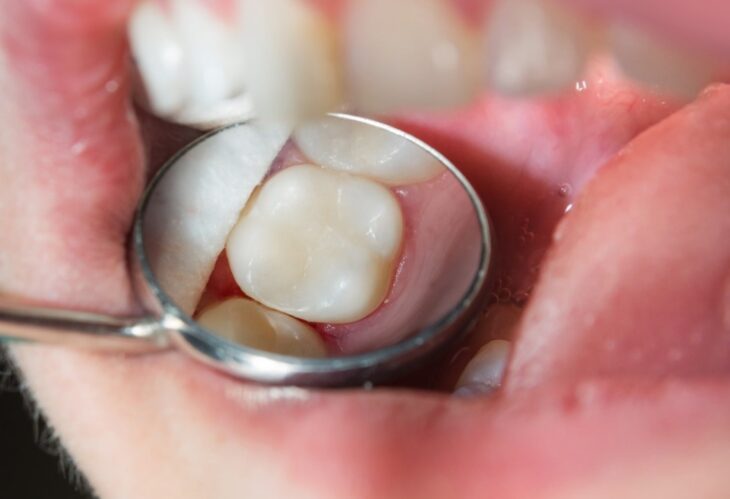
Source: Pinterest.com
The Four Types of Dental Cleaning Procedures
There are mostly 3-4 kinds of dental cleaning procedures, mostly based on tartar development and teeth damage.
-
Prophylaxis Cleaning
Firstly if you routinely visit the dentist and regularly brush your teeth properly, tartar and plaque growth is minimal and a prophylaxis cleaning will do. In this, a gritty toothpaste and electric motorized toothbrush are used to scrub and clean your teeth in motion.
-
Deep Cleaning
This is usually needed, when there has been periodontal damage due to tartar buildup, leaving your gums infected or bleeding and the roots of your tooth exposed. First, scaling is done, where your teeth, roots, and gums are rid of the tartar and plaque. Then the tooth roots are smoothened out through planning so that the gums reattach themselves.
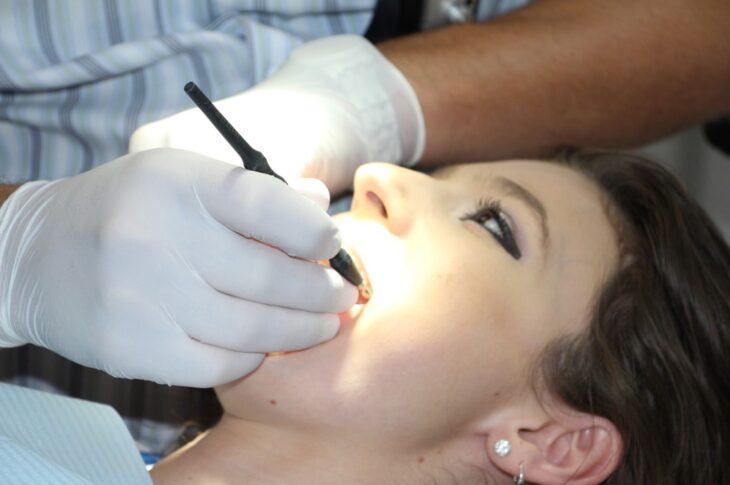
Source: pixabay.com
-
Gross Debridement Cleaning
This is needed for only those who’ve never been to the dentist and have poor dental hygiene. First, a dental scaler and an electric instrument are used to fragment the hard tartar buildup and scrape them off. Then a prophylaxis cleaning follows, only after the excess tartar and plaque have been eliminated.
-
Periodontal Maintenance
This is advisable for periodontitis patients. Although the gum disease cannot be stopped, regular periodontal maintenance cleanings can help reduce the progression of the disease, avoid bacteria growth, gum inflammations, and more. Depending upon the severity of gum disease, these cleanings are scheduled.
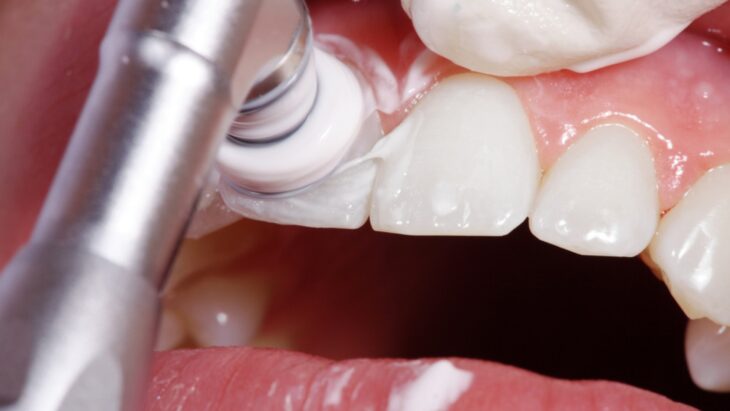
Source: clinicadentalhispanidad.com
The Golden Benefits of Professional Dental Cleaning
Regular dentist visits, at least twice a year is advisable even with a healthy dental hygiene routine. We know dental cleaning is essential, but let’s take a look at the benefits a dental cleaning offers:
-
No Stains
Certain drinks, food, and eating habits leave stubborn stains on your teeth. Dental cleaning helps eliminate these. Feel confident with your brightened smile and a healthy set of teeth.
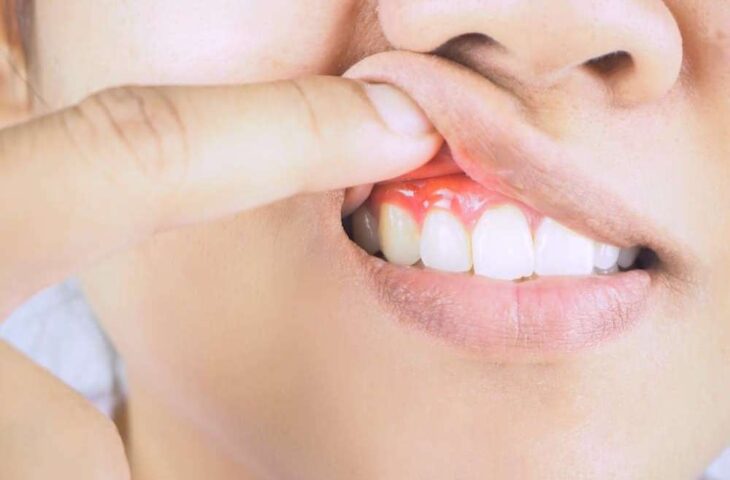
Source: chelmsforddental.com.au
-
Avoiding Loose Teeth and Gums
Neglected dental hygiene often results in your teeth and gum getting loosened, resulting in tooth loss. Tooth loss and gum diseases are quite common for people who avoid dentists.
-
Fresh Breath All-Around
Bad breath and an unhealthy mouth can cause continuous discomfort. A strong dental hygiene routine and regular dental cleaning can help eliminate bad breath and keep your mouth fresh and healthy for longer periods.
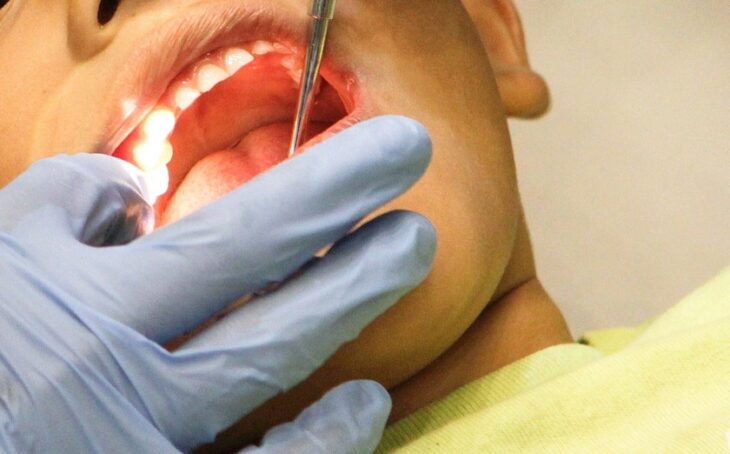
Source: latimes.com
-
Avoid Cavities and Decaying of Teeth
You must protect your teeth. While hard brushing can cause your tooth to decay by enamel damage. Poor dental care and irregular dentist visits can further increase your tooth decay and tooth loss. Moreover, cavities become more probable, where plaque eats away your tooth enamel, damaging them. Dental Cleaning removes this possibility by ridding plaque buildup.
-
Save Money in the Long Run
Prevention is better than cure and that is true for your wallet as well. While dental cleanings may not cost you much, severe damage and recovery procedures mean more discomfort for your and a heavier dent in the wallet.
Now that you are somewhat aware of what to expect when going for your dental cleaning. Book your appointment here today and leave your tooth care at the hands of professionals!
